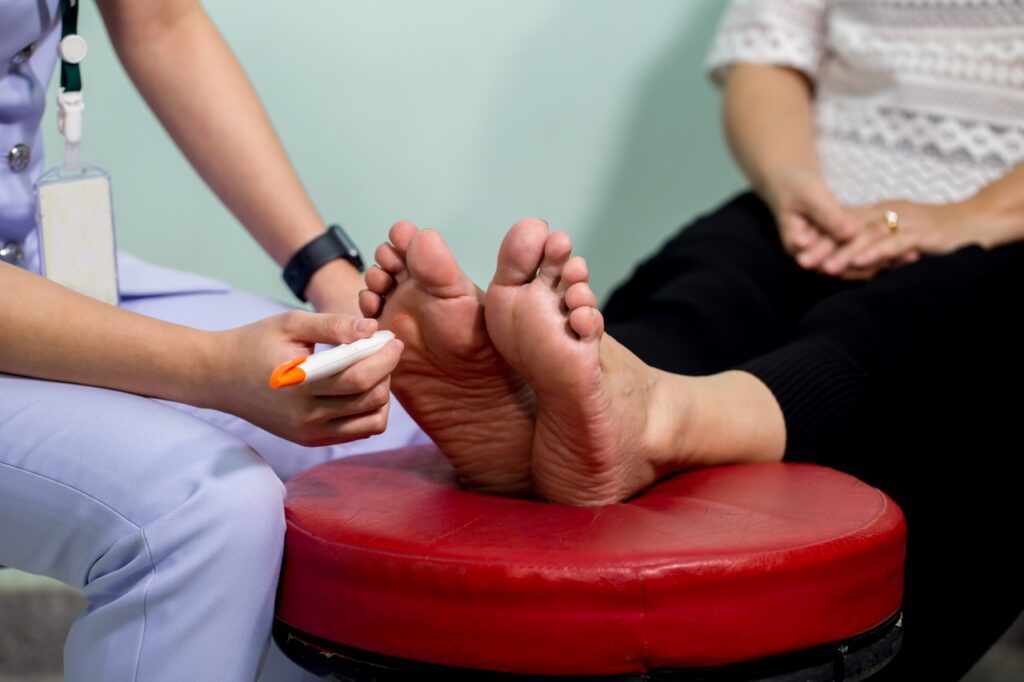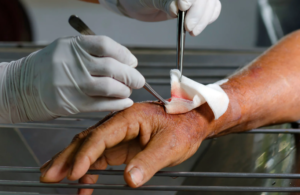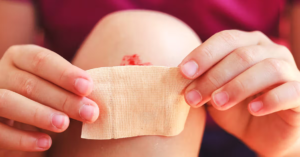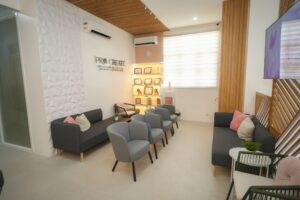Understanding the Role of a Diabetic Wound Doctor
A diabetic wound doctor is more than just a physician who treats wounds; they are specialists trained to handle the unique challenges that diabetic patients face when it comes to healing. Unlike regular wounds that may close within a few days or weeks, diabetic wounds often linger, worsen, or become infected due to impaired circulation and nerve damage caused by high blood sugar levels. These wounds may start as small cuts or blisters but can escalate into serious ulcers if not properly managed. The role of the diabetic wound doctor is to diagnose these conditions early, apply advanced treatments, and monitor healing closely. Their expertise makes a difference between slow, painful recovery and faster, safer healing. Patients who work with a specialist gain access to advanced wound care technologies that go far beyond basic bandages or home remedies. By focusing on both medical treatment and preventive strategies, these doctors safeguard not just the wound, but the patient’s overall health and mobility.
Why Diabetic Wounds Require Specialized Medical Attention
Diabetic wounds require a high level of specialized care because they heal under more complex conditions compared to typical injuries. Poor circulation is a major factor since it limits the delivery of oxygen and nutrients to the wound site, delaying the healing process. Nerve damage, or neuropathy, often prevents patients from feeling pain in their feet or legs, meaning that wounds can go unnoticed until they become severe. Without prompt treatment, even a small diabetic wound can lead to infection, abscesses, or gangrene. That’s why relying on a general practitioner or self-treatment can be risky. A diabetic wound doctor understands these challenges and provides care that reduces the chances of amputation, which remains one of the biggest fears for diabetic patients. They don’t just focus on cleaning the wound; they create a personalized care plan that addresses circulation, blood sugar management, and infection control. This approach ensures that healing is not only possible but also long-lasting. Patients who seek specialized treatment benefit from early intervention that saves them from prolonged suffering and costly complications.
Meet Dr. Lou Mervyn Tec – Expert Diabetic Wound Doctor in the Philippines
In the Philippines, one name stands out when it comes to expert wound care: Dr. Lou Mervyn Tec. A board-certified orthopedic surgeon and highly experienced wound care specialist, Dr. Tec leads Kalingap Wound Care Clinic with a strong reputation for treating complex wounds, especially those caused by diabetes. With international training in Japan and Australia, he has mastered advanced techniques such as ultrasonic-assisted debridement and negative pressure wound therapy, both of which are highly effective in diabetic wound management. What sets Dr. Tec apart is not only his medical expertise but also his compassionate approach that reflects Filipino values of kalinga (care) and lingap (nurture). He is known for taking time to understand each patient’s condition, tailoring treatment plans that prevent amputations and restore quality of life. Many families across Metro Manila trust him for his ability to combine modern medicine with genuine compassion. Under his care, patients feel both supported and reassured, knowing that their healing is guided by a true specialist who treats them like family.
Advanced Treatments Offered by a Diabetic Wound Doctor
Specialized treatment from a diabetic wound doctor involves a combination of advanced therapies and careful monitoring. One of the most effective procedures is ultrasonic-assisted debridement, a technique that gently removes dead or infected tissue to allow new healthy tissue to grow. Another cornerstone therapy is Negative Pressure Wound Therapy (NPWT), which uses vacuum-assisted technology to stimulate tissue regeneration and speed up wound closure. Customized wound dressings are also critical, as diabetic wounds often require specific materials such as alginate, hydrocolloid, or antimicrobial dressings that control infection and promote healing. In addition to these procedures, diabetic wound doctors provide infection monitoring, since even a small bacterial growth can spread quickly in diabetic patients. Long-term care programs are often part of treatment, especially for elderly or bedridden patients who face higher risks of complications. These advanced therapies are designed not only to treat the wound at hand but to ensure that patients do not suffer repeat injuries or worsening of existing conditions. The precision and care applied by specialists offer hope to patients who may have previously thought that their wounds were beyond healing.
Holistic Approach to Diabetic Wound Care at Kalingap
What makes Kalingap Wound Care Clinic different is its holistic approach to wound management. A diabetic wound doctor at Kalingap does not just treat the physical wound; the clinic also addresses the emotional and social challenges that come with long-term illness. Patients often feel anxious or discouraged when their wounds do not heal quickly, and this can impact their overall well-being. At Kalingap, every patient is treated with dignity, compassion, and respect, ensuring that healing is not only physical but also emotional. Beyond medical treatments, the clinic provides preventive education for patients and caregivers, teaching them how to manage wounds at home and avoid recurrence. Affordability is another cornerstone of their care model, making expert wound care accessible to families from different financial backgrounds. From Makati City to Quezon City and across Metro Manila, the clinic has become a trusted name for diabetic patients who want both advanced technology and genuine compassion. This holistic approach ensures that patients leave not only with healthier wounds but also with renewed confidence and a sense of hope.
Why Choose Kalingap Wound Care Clinic for Diabetic Wound Care
Choosing a diabetic wound doctor is an important decision that can determine the future of a patient’s health. Kalingap Wound Care Clinic stands out for many reasons. It is led by Dr. Lou Mervyn Tec, whose expertise in wound care has helped countless diabetic patients avoid amputations and regain mobility. The clinic uses cutting-edge medical technologies while ensuring that care remains patient-centered and compassionate. What sets it further apart is its affordability, allowing families from all income levels to receive the same high standard of treatment. Education and prevention programs ensure that patients and caregivers are empowered to manage wounds effectively at home. The clinic’s strong community commitment, rooted in Filipino values, creates a supportive environment where patients are treated not just as cases, but as individuals with unique stories and needs. For those searching for trusted diabetic wound care in the Philippines, Kalingap offers a rare combination of advanced medical precision and heartfelt compassion that makes healing possible and accessible.
Frequently Asked Questions (FAQ)
Q1: What makes a diabetic wound different from other wounds?
A diabetic wound heals slower and carries a higher risk of infection due to poor circulation and nerve damage. This makes professional care essential to avoid complications.
Q2: Can a diabetic wound doctor help prevent amputation?
Yes. With early diagnosis and advanced therapies like ultrasonic-assisted debridement and NPWT, many patients can avoid surgery or limb amputation.
Q3: Is treatment with a diabetic wound doctor expensive?
No. At Kalingap Wound Care Clinic, treatment packages are designed to be affordable for families across different income levels while maintaining high-quality care.
Q4: Do I need a referral to see a diabetic wound doctor?
No referral is needed. Patients can book a free consultation directly at Kalingap Wound Care Clinic.
Q5: How long does it take for a diabetic wound to heal under specialist care?
Healing time varies depending on severity and overall health, but many patients notice improvement within weeks when under a specialist’s supervision.






